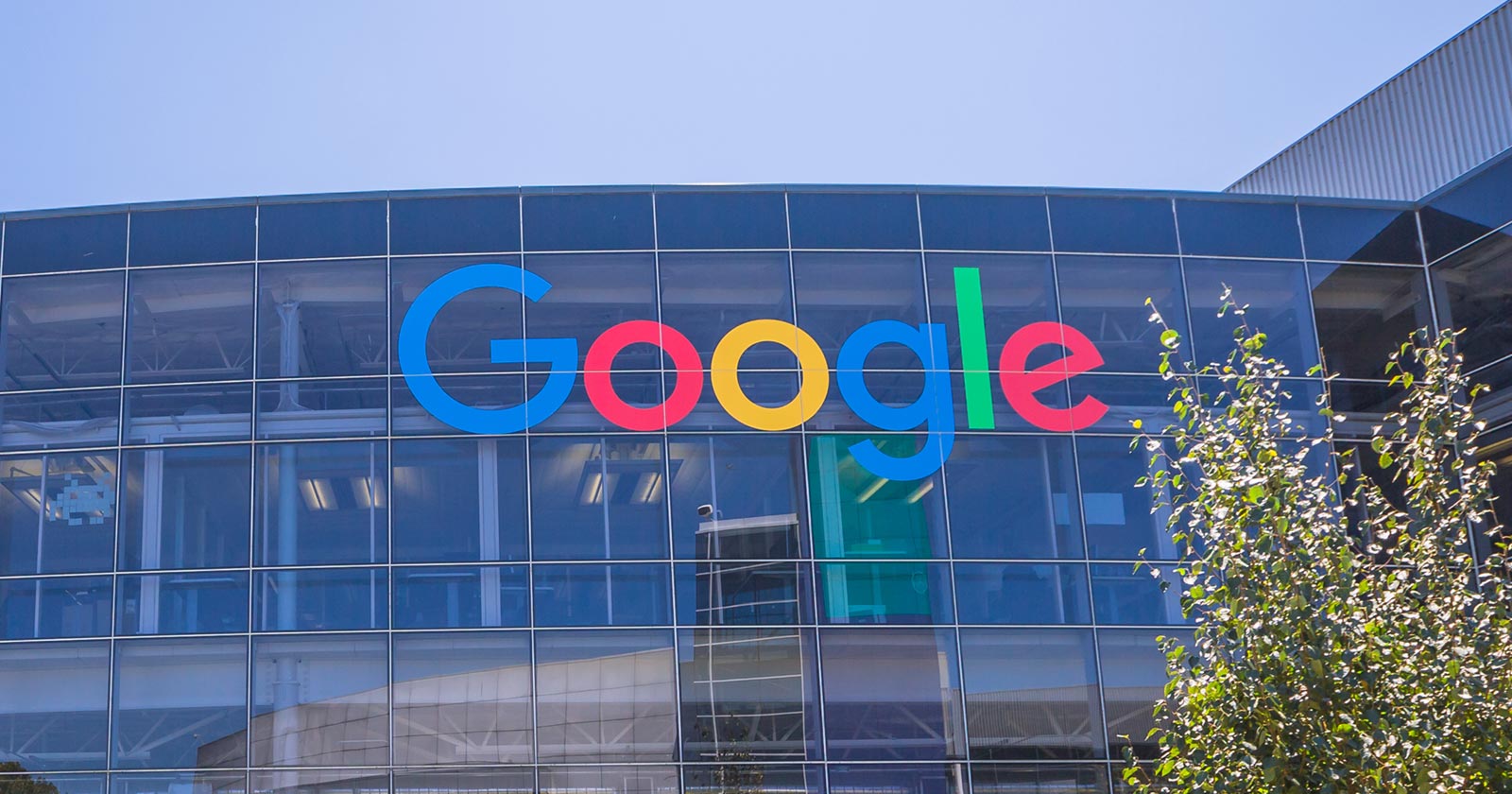SEO
Four tips for SEM teams to adjust to a privacy-focused future

30-second summary:
- Within the digital marketing space, the conversation around privacy and cookie changes has focused heavily on programmatic and paid social
- But how will third-party cookie deprecation and new privacy regulations impact paid search?
- Here is what search marketers can expect and how to prepare
In the digital marketing world, targeting, measurement, and optimization have foundationally relied on the ability to accurately track user behaviors and performance across the web. However, as we all know, platforms like Google and Apple have introduced privacy-focused initiatives over the past few years that complicate targeting and measurement for advertisers.
When discussing the impacts of these changes, much of the conversation has focused on programmatic and paid social, which are undoubtedly the digital channels feeling the greatest impact. What has not been discussed in great detail is the impact on search marketing. How should advertisers adapt their paid search strategies to adjust to these new realities?
Before digging into action items, let’s recap the newest updates and how they’ll impact paid search campaigns.
Chrome’s privacy updates will have a greater impact than iOS
There are two key privacy changes top-of-mind for search marketers in 2021. App Tracking Transparency (ATT), introduced through Apple’s iOS 14.5 update, requires a user to opt-in before a company can track their data across other apps or websites. Fortunately, the impact of this update on search programs for most advertisers is limited. Advertisers may see fluctuations in universal app campaign (UAC) volume, and search properties with a larger app-based audience (for example, YouTube) will experience some degradation in measurement and targeting. By and large, though, the ATT update is more of an issue for programmatic advertisers than search marketers.
Google Chrome’s third-party cookie deprecation, coming in 2023, will have a larger impact on paid search. From a targeting perspective, remarketing lists for search ads (RLSA) will become less effective without data on users’ behaviors across non-Google properties. As of Q3 2020, RLSA accounted for 20 percent of Google search ad clicks for Merkle advertisers – so this is a significant segment of traffic. There will also be new measurement challenges, especially for companies relying on proprietary reporting tech.
While iOS 14.5 is already a reality for advertisers, there is more than a year left to prepare for Google’s third-party cookie deprecation. There are several steps search marketers can take now to optimize performance within a more privacy-focused environment.
1. Lean into first-party data audience solutions to target
Effective audience segmentation and targeting will continue to be critical in search moving forward. Google offers several in-platform audience options, such as in-market and affinity audiences, that don’t rely on third-party data and can be leveraged by advertisers indefinitely.
However, there’s a greater opportunity for organizations to differentiate themselves by crafting a strong audience strategy using their own first-party data with Customer Match. Many advertisers already use Customer Match to some degree, but the data may not be refreshed regularly, or it may not be segmented in detail. The transition away from third-party cookies is the perfect impetus for fine-tuning a first-party data strategy.
First, advertisers should assess the quality of their first-party data. How comprehensive is the data that’s collected? Are there a lot of duplicate records, or is there a reliable unique record for each customer? All of the slicing and dicing in the world won’t be helpful if the data you’re working with is fundamentally flawed.
Next, marketers should assess opportunities to segment their customer lists in meaningful ways – a single “email subscribers list” isn’t going to cut it anymore. Smart segmentation is always important, but it will become even more critical because it will empower Google to build more tailored similar audiences.
After establishing segments, there must be a plan to refresh those audiences frequently. Determine an appropriate cadence for updating customer match lists and determine who’s responsible for doing it. Currently, this can be done through the Google Ads API or within the Google Ads interface.
Once a foundation is in place for your audience strategy, revisit your approach quarterly to ensure that segments continue to align with attributes important to your customers and your business. This also creates a natural check-in point to confirm that lists are being updated as expected and that they’re all receiving traffic. If needed, audience bid modifiers should be adjusted to reflect current performance.
On the topic of bidding…
2. Test or transition to Smart Bidding to take advantage of Google’s proprietary signals
While we, as advertisers, will have lesser user data available to us without third-party cookies, Google will continue to have a wealth of information about its users and their behavior on Google-owned properties. Google Ads’ Smart Bidding allows advertisers to take advantage of those audience signals to reach the right person at the right bid with machine learning. That’s not to say that segmentation isn’t important with Smart Bidding – it still is. One of the many signals the bidder looks at is all of the audiences a given user belongs to, including customer match audiences.
Advertisers can and should take advantage of custom audience segmentations through Google Analytics, Looker, or Google Cloud Platform (Big Query). And they should automate the pushing of defined customer audiences to Google marketing activation to maximize business data with Google’s Smart Bidding.
Whatever your advertising goals may be, there is likely a Google Ads Smart Bidding strategy to suit your business needs. For search marketers not yet using Smart Bidding, it’d be smart to start testing in early 2022 to iron out any kinks and have a full-blown Smart Bidding approach before 2023.
3. Get comfortable with new reporting methods
We’ve talked a lot about adapting to the changes to come with targeting, but privacy updates also create challenges for reporting. There will be a measurement gap that advertisers need to solve. Fortunately, Google Ads has solutions in place to help fill holes with enhanced and modeled conversions.
Enhanced conversions improve reporting accuracy by using an advertiser’s hashed first-party data to tie a conversion event to an ad interaction. Enhanced conversions are powerful in that they make a one-to-one connection between an impression or click and a purchase. Modeled conversions, on the other hand, find their power in scalability; Google has been using them to report on cross-device conversions for several years. When used in combination, advertisers get the benefit of precision where a one-to-one connection exists, while smartly estimating conversions in areas where it does not.
As privacy regulations increasingly muddy the reporting waters, the stakes are higher to work with Google to fill the gaps. If you’re relying primarily on proprietary technology for reporting, consider using Google’s measurement system to get a more complete picture of performance. Understanding the full impact of search is critical for being able to optimize and allocate budgets effectively. Note that Google’s global site tag or tag manager is required to appropriately track conversions.
4. Monitor universal app campaigns for performance changes
Advertisers using UAC to drive app downloads via paid search should closely monitor performance for those campaigns. So far, Merkle has observed a slow downward trend in tracked installs as a result of Apple’s ATT update. To avoid the effects of ATT, some advertisers are increasing their investment in Android or shifting spend there entirely. UAC can continue to be an effective channel for marketers, but reduced visibility on iOS may require bid or budget shifts in order to hit performance goals.
Conclusion
Privacy updates are changing the way marketers approach targeting and measurement. Don’t panic – but do put a plan in place. With the right adjustments, search advertisers can effectively pivot along with the industry. More than ever, advertisers must value first-party audiences driven by search to further customer engagement, experiences, and marketing ROI. Using that first-party data, in conjunction with machine-learning-based bid strategies and modeled and enhanced reporting, will create a foundation to help future proof search campaigns for privacy updates in the years to come.
Matt Mierzejewski is SVP of Performance Marketing Lab and Search at Merkle Inc.
Subscribe to the Search Engine Watch newsletter for insights on SEO, the search landscape, search marketing, digital marketing, leadership, podcasts, and more.
Join the conversation with us on LinkedIn and Twitter.
SEO
Google On Hyphens In Domain Names

Google’s John Mueller answered a question on Reddit about why people don’t use hyphens with domains and if there was something to be concerned about that they were missing.
Domain Names With Hyphens For SEO
I’ve been working online for 25 years and I remember when using hyphens in domains was something that affiliates did for SEO when Google was still influenced by keywords in the domain, URL, and basically keywords anywhere on the webpage. It wasn’t something that everyone did, it was mainly something that was popular with some affiliate marketers.
Another reason for choosing domain names with keywords in them was that site visitors tended to convert at a higher rate because the keywords essentially prequalified the site visitor. I know from experience how useful two-keyword domains (and one word domain names) are for conversions, as long as they didn’t have hyphens in them.
A consideration that caused hyphenated domain names to fall out of favor is that they have an untrustworthy appearance and that can work against conversion rates because trustworthiness is an important factor for conversions.
Lastly, hyphenated domain names look tacky. Why go with tacky when a brandable domain is easier for building trust and conversions?
Domain Name Question Asked On Reddit
This is the question asked on Reddit:
“Why don’t people use a lot of domains with hyphens? Is there something concerning about it? I understand when you tell it out loud people make miss hyphen in search.”
And this is Mueller’s response:
“It used to be that domain names with a lot of hyphens were considered (by users? or by SEOs assuming users would? it’s been a while) to be less serious – since they could imply that you weren’t able to get the domain name with fewer hyphens. Nowadays there are a lot of top-level-domains so it’s less of a thing.
My main recommendation is to pick something for the long run (assuming that’s what you’re aiming for), and not to be overly keyword focused (because life is too short to box yourself into a corner – make good things, course-correct over time, don’t let a domain-name limit what you do online). The web is full of awkward, keyword-focused short-lived low-effort takes made for SEO — make something truly awesome that people will ask for by name. If that takes a hyphen in the name – go for it.”
Pick A Domain Name That Can Grow
Mueller is right about picking a domain name that won’t lock your site into one topic. When a site grows in popularity the natural growth path is to expand the range of topics the site coves. But that’s hard to do when the domain is locked into one rigid keyword phrase. That’s one of the downsides of picking a “Best + keyword + reviews” domain, too. Those domains can’t grow bigger and look tacky, too.
That’s why I’ve always recommended brandable domains that are memorable and encourage trust in some way.
Read the post on Reddit:
Read Mueller’s response here.
Featured Image by Shutterstock/Benny Marty
SEO
Reddit Post Ranks On Google In 5 Minutes

Google’s Danny Sullivan disputed the assertions made in a Reddit discussion that Google is showing a preference for Reddit in the search results. But a Redditor’s example proves that it’s possible for a Reddit post to rank in the top ten of the search results within minutes and to actually improve rankings to position #2 a week later.
Discussion About Google Showing Preference To Reddit
A Redditor (gronetwork) complained that Google is sending so many visitors to Reddit that the server is struggling with the load and shared an example that proved that it can only take minutes for a Reddit post to rank in the top ten.
That post was part of a 79 post Reddit thread where many in the r/SEO subreddit were complaining about Google allegedly giving too much preference to Reddit over legit sites.
The person who did the test (gronetwork) wrote:
“…The website is already cracking (server down, double posts, comments not showing) because there are too many visitors.
…It only takes few minutes (you can test it) for a post on Reddit to appear in the top ten results of Google with keywords related to the post’s title… (while I have to wait months for an article on my site to be referenced). Do the math, the whole world is going to spam here. The loop is completed.”
Reddit Post Ranked Within Minutes
Another Redditor asked if they had tested if it takes “a few minutes” to rank in the top ten and gronetwork answered that they had tested it with a post titled, Google SGE Review.
gronetwork posted:
“Yes, I have created for example a post named “Google SGE Review” previously. After less than 5 minutes it was ranked 8th for Google SGE Review (no quotes). Just after Washingtonpost.com, 6 authoritative SEO websites and Google.com’s overview page for SGE (Search Generative Experience). It is ranked third for SGE Review.”
It’s true, not only does that specific post (Google SGE Review) rank in the top 10, the post started out in position 8 and it actually improved ranking, currently listed beneath the number one result for the search query “SGE Review”.
Screenshot Of Reddit Post That Ranked Within Minutes
Anecdotes Versus Anecdotes
Okay, the above is just one anecdote. But it’s a heck of an anecdote because it proves that it’s possible for a Reddit post to rank within minutes and get stuck in the top of the search results over other possibly more authoritative websites.
hankschrader79 shared that Reddit posts outrank Toyota Tacoma forums for a phrase related to mods for that truck.
Google’s Danny Sullivan responded to that post and the entire discussion to dispute that Reddit is not always prioritized over other forums.
Danny wrote:
“Reddit is not always prioritized over other forums. [super vhs to mac adapter] I did this week, it goes Apple Support Community, MacRumors Forum and further down, there’s Reddit. I also did [kumo cloud not working setup 5ghz] recently (it’s a nightmare) and it was the Netgear community, the SmartThings Community, GreenBuildingAdvisor before Reddit. Related to that was [disable 5g airport] which has Apple Support Community above Reddit. [how to open an 8 track tape] — really, it was the YouTube videos that helped me most, but it’s the Tapeheads community that comes before Reddit.
In your example for [toyota tacoma], I don’t even get Reddit in the top results. I get Toyota, Car & Driver, Wikipedia, Toyota again, three YouTube videos from different creators (not Toyota), Edmunds, a Top Stories unit. No Reddit, which doesn’t really support the notion of always wanting to drive traffic just to Reddit.
If I guess at the more specific query you might have done, maybe [overland mods for toyota tacoma], I get a YouTube video first, then Reddit, then Tacoma World at third — not near the bottom. So yes, Reddit is higher for that query — but it’s not first. It’s also not always first. And sometimes, it’s not even showing at all.”
hankschrader79 conceded that they were generalizing when they wrote that Google always prioritized Reddit. But they also insisted that that didn’t diminish what they said is a fact that Google’s “prioritization” forum content has benefitted Reddit more than actual forums.
Why Is The Reddit Post Ranked So High?
It’s possible that Google “tested” that Reddit post in position 8 within minutes and that user interaction signals indicated to Google’s algorithms that users prefer to see that Reddit post. If that’s the case then it’s not a matter of Google showing preference to Reddit post but rather it’s users that are showing the preference and the algorithm is responding to those preferences.
Nevertheless, an argument can be made that user preferences for Reddit can be a manifestation of Familiarity Bias. Familiarity Bias is when people show a preference for things that are familiar to them. If a person is familiar with a brand because of all the advertising they were exposed to then they may show a bias for the brand products over unfamiliar brands.
Users who are familiar with Reddit may choose Reddit because they don’t know the other sites in the search results or because they have a bias that Google ranks spammy and optimized websites and feel safer reading Reddit.
Google may be picking up on those user interaction signals that indicate a preference and satisfaction with the Reddit results but those results may simply be biases and not an indication that Reddit is trustworthy and authoritative.
Is Reddit Benefiting From A Self-Reinforcing Feedback Loop?
It may very well be that Google’s decision to prioritize user generated content may have started a self-reinforcing pattern that draws users in to Reddit through the search results and because the answers seem plausible those users start to prefer Reddit results. When they’re exposed to more Reddit posts their familiarity bias kicks in and they start to show a preference for Reddit. So what could be happening is that the users and Google’s algorithm are creating a self-reinforcing feedback loop.
Is it possible that Google’s decision to show more user generated content has kicked off a cycle where more users are exposed to Reddit which then feeds back into Google’s algorithm which in turn increases Reddit visibility, regardless of lack of expertise and authoritativeness?
Featured Image by Shutterstock/Kues
SEO
WordPress Releases A Performance Plugin For “Near-Instant Load Times”

WordPress released an official plugin that adds support for a cutting edge technology called speculative loading that can help boost site performance and improve the user experience for site visitors.
Speculative Loading
Rendering means constructing the entire webpage so that it instantly displays (rendering). When your browser downloads the HTML, images, and other resources and puts it together into a webpage, that’s rendering. Prerendering is putting that webpage together (rendering it) in the background.
What this plugin does is to enable the browser to prerender the entire webpage that a user might navigate to next. The plugin does that by anticipating which webpage the user might navigate to based on where they are hovering.
Chrome lists a preference for only prerendering when there is an at least 80% probability of a user navigating to another webpage. The official Chrome support page for prerendering explains:
“Pages should only be prerendered when there is a high probability the page will be loaded by the user. This is why the Chrome address bar prerendering options only happen when there is such a high probability (greater than 80% of the time).
There is also a caveat in that same developer page that prerendering may not happen based on user settings, memory usage and other scenarios (more details below about how analytics handles prerendering).
The Speculative Loading API solves a problem that previous solutions could not because in the past they were simply prefetching resources like JavaScript and CSS but not actually prerendering the entire webpage.
The official WordPress announcement explains it like this:
Introducing the Speculation Rules API
The Speculation Rules API is a new web API that solves the above problems. It allows defining rules to dynamically prefetch and/or prerender URLs of certain structure based on user interaction, in JSON syntax—or in other words, speculatively preload those URLs before the navigation. This API can be used, for example, to prerender any links on a page whenever the user hovers over them.”
The official WordPress page about this new functionality describes it:
“The Speculation Rules API is a new web API… It allows defining rules to dynamically prefetch and/or prerender URLs of certain structure based on user interaction, in JSON syntax—or in other words, speculatively preload those URLs before the navigation.
This API can be used, for example, to prerender any links on a page whenever the user hovers over them. Also, with the Speculation Rules API, “prerender” actually means to prerender the entire page, including running JavaScript. This can lead to near-instant load times once the user clicks on the link as the page would have most likely already been loaded in its entirety. However that is only one of the possible configurations.”
The new WordPress plugin adds support for the Speculation Rules API. The Mozilla developer pages, a great resource for HTML technical understanding describes it like this:
“The Speculation Rules API is designed to improve performance for future navigations. It targets document URLs rather than specific resource files, and so makes sense for multi-page applications (MPAs) rather than single-page applications (SPAs).
The Speculation Rules API provides an alternative to the widely-available <link rel=”prefetch”> feature and is designed to supersede the Chrome-only deprecated <link rel=”prerender”> feature. It provides many improvements over these technologies, along with a more expressive, configurable syntax for specifying which documents should be prefetched or prerendered.”
See also: Are Websites Getting Faster? New Data Reveals Mixed Results
Performance Lab Plugin
The new plugin was developed by the official WordPress performance team which occasionally rolls out new plugins for users to test ahead of possible inclusion into the actual WordPress core. So it’s a good opportunity to be first to try out new performance technologies.
The new WordPress plugin is by default set to prerender “WordPress frontend URLs” which are pages, posts, and archive pages. How it works can be fine-tuned under the settings:
Settings > Reading > Speculative Loading
Browser Compatibility
The Speculative API is supported by Chrome 108 however the specific rules used by the new plugin require Chrome 121 or higher. Chrome 121 was released in early 2024.
Browsers that do not support will simply ignore the plugin and will have no effect on the user experience.
Check out the new Speculative Loading WordPress plugin developed by the official core WordPress performance team.
How Analytics Handles Prerendering
A WordPress developer commented with a question asking how Analytics would handle prerendering and someone else answered that it’s up to the Analytics provider to detect a prerender and not count it as a page load or site visit.
Fortunately both Google Analytics and Google Publisher Tags (GPT) both are able to handle prerenders. The Chrome developers support page has a note about how analytics handles prerendering:
“Google Analytics handles prerender by delaying until activation by default as of September 2023, and Google Publisher Tag (GPT) made a similar change to delay triggering advertisements until activation as of November 2023.”
Possible Conflict With Ad Blocker Extensions
There are a couple things to be aware of about this plugin, aside from the fact that it’s an experimental feature that requires Chrome 121 or higher.
A comment by a WordPress plugin developer that this feature may not work with browsers that are using the uBlock Origin ad blocking browser extension.
Download the plugin:
Speculative Loading Plugin by the WordPress Performance Team
Read the announcement at WordPress
Speculative Loading in WordPress
See also: WordPress, Wix & Squarespace Show Best CWV Rate Of Improvement
-

 SEARCHENGINES6 days ago
SEARCHENGINES6 days agoMore Google March 2024 Core Update Ranking Volatility
-

 PPC6 days ago
PPC6 days agoCompetitor Monitoring: 7 ways to keep watch on the competition
-

 PPC5 days ago
PPC5 days agoA History of Google AdWords and Google Ads: Revolutionizing Digital Advertising & Marketing Since 2000
-

 WORDPRESS6 days ago
WORDPRESS6 days agoThrive Architect vs Divi vs Elementor
-

 PPC6 days ago
PPC6 days ago31 Ready-to-Go Mother’s Day Messages for Social Media, Email, & More
-

 WORDPRESS5 days ago
WORDPRESS5 days agoTurkish startup ikas attracts $20M for its e-commerce platform designed for small businesses
-

 MARKETING4 days ago
MARKETING4 days agoRoundel Media Studio: What to Expect From Target’s New Self-Service Platform
-

 MARKETING6 days ago
MARKETING6 days agoHow To Adapt Your SEO and Content Strategies for SGE and AI Experiences















You must be logged in to post a comment Login